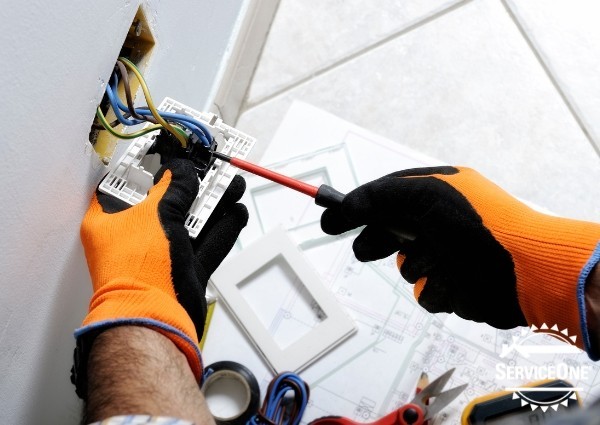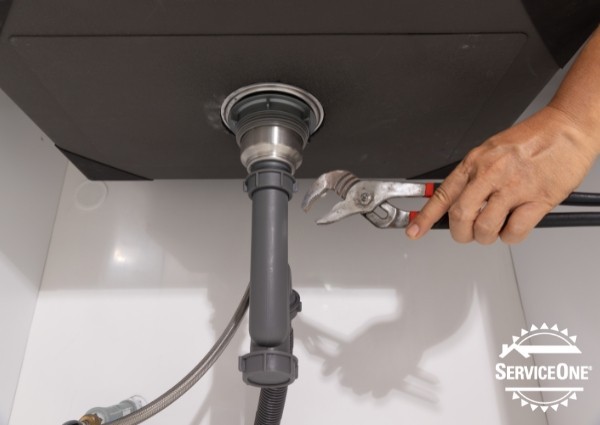Indoor air quality (IAQ) is a crucial aspect of maintaining a healthy home environment. The air we breathe inside our homes can have a significant impact on our health, well-being and overall quality of life. In turn, poor indoor air quality can lead to a range of health issues, including respiratory problems, allergies and asthma. Therefore, it’s essential to take steps to improve and maintain good indoor air quality.
At ServiceOne, our team understands the importance of quality and clean air in your home! Our team specializes in installing UV air purifiers, humidifiers and dehumidifiers. In this blog, we’ll discuss the importance of indoor air quality and provide some tips for achieving cleaner and healthier air in your home.
Why air quality matters
First and foremost, it’s essential to understand why indoor air quality matters. Many people are unaware that indoor air can be more polluted than outdoor air. This is due to a variety of factors, including the presence of indoor air pollutants such as dust, pet dander, mold and volatile organic compounds (VOCs) emitted by household products and building materials. Poor ventilation and inadequate filtration can also contribute to poor indoor air quality, trapping pollutants inside our homes and allowing them to accumulate over time.
Damages that poor air quality can cause
Poor indoor air quality can have a significant impact on our health. Exposure to indoor air pollutants can exacerbate respiratory conditions such as asthma and allergies, leading to symptoms like coughing, wheezing and shortness of breath. Long-term exposure to indoor air pollution has also been linked to more serious health problems, including cardiovascular disease, respiratory infections and even cancer. Children, the elderly and individuals with pre-existing health conditions are particularly vulnerable to the effects of poor indoor air quality.
During the midwest summer months, allergies are not the only thing you should be considering when thinking of indoor air quality. Humidity is another factor that could end up affecting the comfortability of your home.
How to improve your home’s indoor air quality
Fortunately, there are several steps you can take to improve indoor air quality and promote cleaner, healthier air in your home. One of the most important things you can do is to ensure proper ventilation. Opening windows and doors regularly can help to improve air circulation and reduce indoor air pollution. Additionally, using exhaust fans in kitchens and bathrooms can help to remove pollutants and excess moisture from the air.
Another key factor in maintaining good indoor air quality is to keep your home clean and free of dust and allergens. Regular vacuuming, dusting and sweeping can help remove dust, pet dander and other pollutants from your home. It’s also essential to wash bedding, curtains and other fabrics regularly to prevent the buildup of allergens.
Investing in a high-quality UV air purifier can improve indoor air quality by removing airborne pollutants from the air. Air purifiers work by filtering out particles such as dust, pollen and pet dander, as well as harmful VOCs and other pollutants.
On top of air purifiers, it’s also smart to consider investing in humidifiers and dehumidifiers to better balance humidity levels throughout your home. During the hot and humid summer months, a dehumidifier is a great way to help your home’s air, especially when ventilation is poor. In turn, humidifiers are very effective during the cold winter months when your home’s air is more dry.
Finally, it’s essential to perform maintenance on your HVAC system to ensure optimal indoor air quality. This includes changing air filters regularly, scheduling routine maintenance checks and having your ducts cleaned periodically. A well-maintained HVAC system will not only help to improve indoor air quality but also increase energy efficiency and prolong the life of your system.
Indoor air quality plays a crucial role in our health and well-being. By taking steps to improve and maintain good indoor air quality, such as ensuring proper ventilation, keeping your home clean, investing in an air purifier and maintaining your HVAC system, you can enjoy cleaner and healthier air in your home. Making indoor air quality a priority will not only benefit your health but also contribute to a more comfortable and enjoyable living environment. Reach out to our team today with all of your indoor air quality needs!



